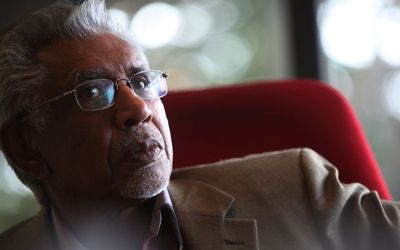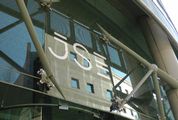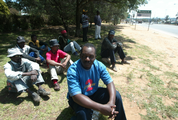PRESIDENT Jacob Zuma should have prepared himself to pay back the money spent on the upgrades to his Nkandla residence, said his former spokesman and long-time comrade, Mac Maharaj, in an interview with the Financial Times.
Mr Maharaj retired earlier this year at the age of 80. He was Mr Zuma’s spindoctor for the most of his first term in office — and had often found himself having to defend Mr Zuma on the Nkandla saga and a range of other issues.
Mr Zuma’s second term in office has seen the Nkandla issue dominating the work of Parliament. It refuses to go away — and the government itself has kept the issue in media headlines, particularly after the release of a report by Police Minister Nathi Nhleko exempting Mr Zuma from paying back any of the R246m spent on the upgrades.
Mr Nhleko found that Mr Zuma did not have to pay for the items described as "undue benefits" by Public Protector Thuli Madonsela including the swimming pool, amphitheatre, cattle kraal, calvert and chicken run.
The FT reports that Mr Maharaj had stopped short of criticising the president.
"I’d say this is the biggest weakness of the administration. From the beginning I said to him, ‘President, prepare yourself for repayment.’ This was before the report came out. And I said, ‘If you have a problem, I’m sure that in your present position it won’t be difficult to raise [the money]’. He said, ‘No, I did not ask for those security enhancements. I’m not paying.’ We know how stubborn each of us can be. And we know each of us has a blind spot. But however this thing pans out, what is important is we create a culture of taking responsibility for our actions," Mr Maharaj told the FT.
It reported that Mr Maharaj was close to Deputy President Cyril Ramaphosa.
"He’s a fantastic negotiator, he’s got an enormous capacity to stay focused on 10 issues. I think he will probably make a good president, [although] I’m not ruling out that even when he becomes president you find some major cock-up takes place," he said in the interview.
In an interview with the Business Day shortly before retiring, Mr Maharaj said leadership is about taking responsibility, ironically he had for the better part of five years, been accused of shielding Mr Zuma from doing just that.
Following Mr Zuma’s comments on electronic tolling — when he infamously said Johannesburg’s roads were not "some national road in Malawi" and caused a diplomatic row — and throughout the Nkandla and Guptagate rows, Maharaj was at the forefront of defending the president.
His work at the Presidency was the last entry in his ledger. He began his political career in 1953 when he was 18.
He contends that there is no "leadership gene", no one is born to become a leader, but the skill is learnt through people’s responses to the challenges they face.
It boils down, he says, to identifying a challenge, making a choice on how to deal with it and facing the consequences.
"If you look at Mandela’s life, if you look at any leader’s life, you will realise that they look at a situation and they see it as a challenge. Once they see it as a challenge they see an opportunity to do something, once they decide to do something they are making a choice," he says. "They intend certain consequences, but invariably their actions lead to consequences they did not intend."
A leader will then respond to both the intended and unintended consequences of action and once again identify the challenges and the opportunities — leading to a choice on how to deal with both.
"Leaders are always taking responsibility, that’s how straightforward the issue is to me."

Mac Maharaj. Picture: THEMBINKOSI DWAYISA
PRESIDENT Jacob Zuma should have prepared himself to pay back the money spent on the upgrades to his Nkandla residence, said his former spokesman and long-time comrade, Mac Maharaj, in an interview with the Financial Times.
Mr Maharaj retired earlier this year at the age of 80. He was Mr Zuma’s spindoctor for the most of his first term in office — and had often found himself having to defend Mr Zuma on the Nkandla saga and a range of other issues.
Mr Zuma’s second term in office has seen the Nkandla issue dominating the work of Parliament. It refuses to go away — and the government itself has kept the issue in media headlines, particularly after the release of a report by Police Minister Nathi Nhleko exempting Mr Zuma from paying back any of the R246m spent on the upgrades.
Mr Nhleko found that Mr Zuma did not have to pay for the items described as "undue benefits" by Public Protector Thuli Madonsela including the swimming pool, amphitheatre, cattle kraal, calvert and chicken run.
The FT reports that Mr Maharaj had stopped short of criticising the president.
"I’d say this is the biggest weakness of the administration. From the beginning I said to him, ‘President, prepare yourself for repayment.’ This was before the report came out. And I said, ‘If you have a problem, I’m sure that in your present position it won’t be difficult to raise [the money]’. He said, ‘No, I did not ask for those security enhancements. I’m not paying.’ We know how stubborn each of us can be. And we know each of us has a blind spot. But however this thing pans out, what is important is we create a culture of taking responsibility for our actions," Mr Maharaj told the FT.
It reported that Mr Maharaj was close to Deputy President Cyril Ramaphosa.
"He’s a fantastic negotiator, he’s got an enormous capacity to stay focused on 10 issues. I think he will probably make a good president, [although] I’m not ruling out that even when he becomes president you find some major cock-up takes place," he said in the interview.
In an interview with the Business Day shortly before retiring, Mr Maharaj said leadership is about taking responsibility, ironically he had for the better part of five years, been accused of shielding Mr Zuma from doing just that.
Following Mr Zuma’s comments on electronic tolling — when he infamously said Johannesburg’s roads were not "some national road in Malawi" and caused a diplomatic row — and throughout the Nkandla and Guptagate rows, Maharaj was at the forefront of defending the president.
His work at the Presidency was the last entry in his ledger. He began his political career in 1953 when he was 18.
He contends that there is no "leadership gene", no one is born to become a leader, but the skill is learnt through people’s responses to the challenges they face.
It boils down, he says, to identifying a challenge, making a choice on how to deal with it and facing the consequences.
"If you look at Mandela’s life, if you look at any leader’s life, you will realise that they look at a situation and they see it as a challenge. Once they see it as a challenge they see an opportunity to do something, once they decide to do something they are making a choice," he says. "They intend certain consequences, but invariably their actions lead to consequences they did not intend."
A leader will then respond to both the intended and unintended consequences of action and once again identify the challenges and the opportunities — leading to a choice on how to deal with both.
"Leaders are always taking responsibility, that’s how straightforward the issue is to me."


























Post a comment